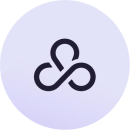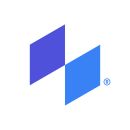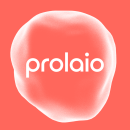Digital health companies develop an array of technology like telemedicine apps and wearable devices to support patients and their medical care. These digital solutions help increase users’ access to resources for proactively managing and improving their physical health, mental health and overall wellness. The following top digital health companies are enhancing the way providers engage with patients.
Top Digital Health Companies
- Flatiron Health
- Garner Health
- PatientPoint
- Click Therapeutics
- Rula
- WHOOP
- Modern Health
- Octave
- Path
- Quit Genius
Digital Health Companies to Know
Quit Genius is a digital platform for treating and managing substance use problems. Its solutions cover alcohol, tobacco and opioid use. Users are given personalized treatment plans with solutions ranging from cognitive behavioral therapy via mobile app to medication-assisted treatment and resources to monitor alcohol and tobacco consumption. Quit Genius’ services are used by employers, health plans and individuals.
firsthand is a digital platform for mental healthcare, including peer-to-peer services, resource referrals and social support, all with the aim of empowering people with mental illness to live healthy, independent lives. The recipient of Digital Health New York awards for multiple years, the company uses virtual services to provide accessible care to underserved populations.
Click Therapeutics builds “digital therapeutics” which are mobile software applications that can be used to treat various medical conditions. These programs engage patients in daily and weekly missions that are tailored to the specifics of their diagnosis. Click Therapeutics’ program to support patients in quitting smoking is already available, and the company has several more software products in the works to treat conditions like depression and chronic lower back pain.
SWORD Health provides virtual solutions for treating and preventing musculoskeletal problems. Its solutions include digital physical therapy, women’s pelvic health care and an artificial intelligence engine that identifies which members are at risk of needing surgery and engages them in preventative interventions. Users are also able to connect with on-call physical health specialists who are available 24/7 to provide support via text.
WHOOP allows members access to their health and fitness metrics through its wearable technology. Its wrist devices offer users data about their health, including their stress levels and sleep quality. The devices feature a screen-free design and makes its data available through the WHOOP app.
Garner Health offers users a way to connect with providers through its data-powered doctor search tool. It provides two major products: Garner, a benefit program that uses incentive accounts and data science to find the best doctors in their communities, and GarnerDataPro, a provider recommendation platform that shows referrals based on director data and the most accurate provider performance. The company examines patient outcomes on more than 500 specialty-specific efficiency and quality measures based on over 75 percent of medical claims data in the United States.
Casana’s Heart Seat is a smart toilet seat that collects and analyzes health information such as a user’s heart rate and blood pressure. That data is sent to care teams to aid them in monitoring a patient’s chronic health conditions. Casana is conducting studies and surveys to evaluate its technology in pursuit of FDA clearance.
Grow Therapy is a mental healthcare platform that enables independent therapists to launch and grow in-network private practices. The company’s technology solutions help providers access large-scale credentialing, referrals and administrative and community support. Grow Therapy’s three-sided marketplace platform serves providers, insurance payors and patients.
Cohere Health leverages AI and machine learning to digitize and streamline prior authorization processes so that patients can quickly connect with quality care services. The Cohere Unify Platform includes predictive capabilities that allow health plans to create proactive, data-driven care paths that will have patients pre-approved for services. Cohere Health says its goal is “making prior authorization an ally, not an obstacle.”
Sailor Health is a digital health company dedicated to building a platform for senior mental health. The company aims to solve the mental health crisis among older adults who face the highest rates of suicide and loneliness, yet receive the least mental healthcare. Sailor digitally pairs thousands of patients with therapist-led care teams. The company’s services, which include compassionate therapy for seniors, are often covered by Medicare with most patients having no copay.
InterSystems offers a comprehensive digital health platform that aims to provide an efficient way to get healthcare apps running, efficient and sustainable. Its IRIS Data Platform provides methods of creating and publishing apps with machine learning capabilities to create better connectivity between patients, providers and payers.
Headway is a platform that connects patients with mental health providers. Before booking a session, patients answer questions about their preferences and provide their insurance details so Headway can match them with therapists and psychiatrists and provide them with a cost estimate for the appointment.
Findhelp specializes in developing “social care technology,” and its work is focused on improving health outcomes for communities around the United States. Its platform’s comprehensive solutions support screening, referrals, invoicing, payments and generating analytics reports so that customers from the public and private sectors, including healthcare providers and payers, can efficiently connect people with resources and manage care.
Rula connects clients with its network of over 3,000 mental health providers, including therapists, psychiatrists and mental health facilities. The company vets each provider with background and licensure checks, and then works with clients to refer them to providers who take their insurance and are likely to be a good fit, based on the client’s preferences.
SimplePractice offers a platform with digital tools for securely and efficiently managing solo and group medical practices. Its electronic health record, or EHR, software solutions cover scheduling, paperless billing, claim filing, video appointments and other important components of streamlined healthcare operations.
Spring Health offers behavioral health solutions for businesses and health plans. The company allows employers to offer mental well-being benefits including digital exercises, coaching, therapy, EAP services and medication. The platform uses machine learning to match a person’s conditions to a personalized care plan. Spring Health serves more than 10 million people across the globe.
Ro brings together technology and medical expertise to provide patients with affordable telehealth services. Through Ro’s platform, patients can connect with providers for support with weight loss, fertility, hair loss and a range of other medical concerns. Treatments are delivered from one of Ro’s nationwide pharmacies. Patients can also collect lab samples at home that can be submitted for diagnostic lab testing.
Zocdoc seeks to empower patients by giving them access to a digital solution for finding reliable, in-network medical providers. They can search Zocdoc’s website or mobile app based on their insurance carrier, location and what kind of specialist they’re looking for or what sort of procedure they need done. The search results show patient reviews and appointment availability.
Octave gives its customers access to mental health services, connecting them to appointments for individual therapy, couples therapy and family therapy, as well as workshops. Octave is available in six states and Washington, D.C. The company uses an online intake form to gather information about patients and then connect them with a provider who has the right background and specialization to meet their individual needs. Octave has physical clinic locations, but has been conducting appointments virtually because of Covid-19.
Healthtech company Transcarent’s members have access to virtual, in-home or in-person care. Using the Transcarent mobile app or web platform, users can secure a behavioral health appointment within three days or arrange for a home care provider to visit them while they’re undergoing oncology treatment. Transcarent’s services are available to individuals and can be offered as part of an employer’s benefits package.
PatientPoint is a healthcare software company that makes patient engagement products. Its tools are designed to co-prioritize patient experience and medical provider workload through improved communication, patient education and automations. Branded interactive screens are installed in hospitals and doctors’ offices, where they can be programmed with health education content that patients receive while they are waiting to see providers.
Healthee partners with employers, delivering technology to optimize the healthcare benefits experience. In addition to its AI-powered virtual assistant for answering employees’ questions related to benefits and care navigation, Healthee also offers 24/7 telehealth access, setting users up with physical and mental health professionals who can help address non-urgent health needs.
Flatiron Health offers healthtech interventions for cancer care centers using data and clinical science to advance research and improve treatments. It partners with researchers, regulators, developers of oncology therapeutics and cancer centers. The company’s primary focuses include an increase in access and efficiency for drug development, patient experience initiatives and improvements on the designs and operations of therapeutic clinical trials.
Prolaio works to innovate monitoring for patients who have cardiovascular conditions, with the goal of enabling precision medical treatment and advances in clinical research. Its platform collects data from devices like smartwatches and blood pressure monitors and applies analytics capabilities to deliver continuous, actionable insights that can help care teams make informed treatment decisions.
Artera offers patient experience and communication tools that allow individuals to set up medical appointments, automatically complete pre-visit screenings, receive referrals and ask questions of their providers. Enterprise healthcare systems and federal agencies rely on Artera’s software to manage patient communications while prioritizing service and efficiency.
Nourish is a telehealth company focused on building technology solutions that give patients access to registered dietitians who can provide personalized support for their health goals. The company accepts hundreds of insurance plans, including Aetna, UnitedHealthcare and BlueCross BlueShield, which means the majority of Nourish users have their virtual nutrition counseling sessions completely covered.
Employers can work with Modern Health to offer their employees mental health support services. The company gives its users access to one-on-one coaching, therapy and psychiatry sessions via video and secure messaging platforms. It also offers live virtual community sessions known as Circles that are led by therapists and coaches who cover topics like workplace challenges and allyship.
Through its website and mobile app, GoodRx helps people access prescription discounts they can use at thousands of U.S. pharmacies. The healthtech company also enables online care via text, call and video. Patients can connect virtually with healthcare professionals through GoodRx to get support for everything from treating the flu to effectively managing sexual health.
Pfizer is a global pharmaceutical company that develops medical treatments and digital solutions intended to have a positive impact on patient experience. For example, digital innovation played an important role in the partnership between Pfizer and BioNTech to develop and distribute a Covid-19 vaccine by enabling real-time predictive modeling and remote site monitoring to support large-scale clinical trials.






























